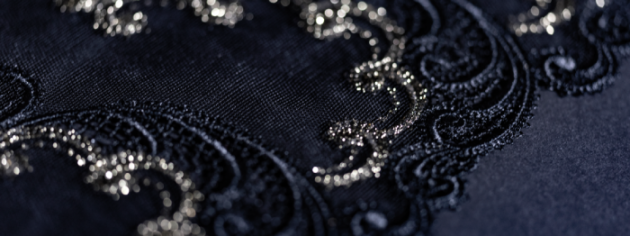Menu
Find out more
Switzerland by train, bus and boat.
Swiss Perspectives in 10 languages.
SWI swissinfo.ch is the international online medium of the Swiss Broadcasting Corporation (SBC). It provides information and background from a Swiss perspective in ten languages. The core topics are direct democracy, Swiss foreign policy, cutting-edge research, multinational companies and developments emanating from International Geneva.
Over 150 pieces of Swiss lace from the museum including Michelle Obama’s ensemble from the 2009 US Presidential Inauguration will be displayed for the first time at Bard Graduate Center starting September 16, 2022

September 13, 2022, New York, NY— What does the Swiss city of St. Gallen have to do with the catwalks of Paris, London, Milan and New York? A new exhibit tracing the development of lace from its sixteenth-century origins to present, “Threads of Power: Lace from the Textilmuseum St. Gallen” reveals several iconic fashion designs with Swiss origins as well as new innovations in the age-old textile trade that will shape the industry’s future. Threads of Power, organized by Bard Graduate Center (BCG) in collaboration with the Textilmuseum in St. Gallen, Switzerland, will open to the public at BGC from September 16, 2022, to January 1, 2023.
The exhibition offers a historic look at this unique Swiss luxury commodity and artisanship once reserved exclusively for the clergy and aristocracy. Garments developed in collaboration with haute couture houses such as Akris, Prada, Dior, Chanel, Saint Laurent and Givenchy will be on display, revealing insights into the designer-manufacturer collaboration process. The exhibition will also explore how hand- and high quality machine-made Swiss lace is incorporated into contemporary couture.
Highlights in the contemporary section of the exhibition include the ensemble Isabel Toledo designed for Michelle Obama for the 2009 Presidential Inauguration. Showcased are St. Gallen’s textile companies Forster Rohner AG, Jakob Schlaepfer, and Bischoff Textil.
From Swiss Chemical Lace,aka Guipure Lace, to Sustainable 3D-Printed Silicone
Ranking most innovative economy for the 11th year in a row, Switzerland continues to break ground in the textile industry. Today, manufacturers collaborate with researchers from various leading universities and institutions, such as the Swiss Federal Laboratories for Materials Science and Technology (EMPA), to develop new standards and champion more sustainable technologies.
Swiss innovative solutions stretch throughout the sector from traceable DNA markers to biodegradable clothes (by Freitag & Calida), high-performance sustainable fabrics (by Ventile by Stotz) and sustainable and efficient 3D scans (by Forster Rohner Lingerie). A prototyping process that enables flexibility in the designing stages, and leads to fewer physical samples, thus reducing the overall environmental footprint.
Sustainability at Heart
The Swiss textile sector is committed to sustainability through the multi-stakeholder program Sustainable Textiles Switzerland 2030. This program aims to transform the textile industry by reducing greenhouse gas emissions, advocating for fair wages and humane working conditions, promoting a circular economy and enabling transparency to ensure sustainable purchasing decisions.
About Bard Graduate Center, New York
As the leading research institute in the United States dedicated to the study of decorative arts, design history, and material culture, Bard Graduate Center and its gallery have pioneered the study of objects as a means to better understand the cultural history of the material world. Offering experiences for scholars, students, and the general public alike, Bard Graduate Center is built on multidisciplinary study and the integration of research, graduate teaching, and public exhibitions. Since its founding in 1993, it has established a network of more than 400 alumni who work in leading museums, universities, and institutions worldwide to advance new ways of thinking about material culture.
About the Textilmuseum, St. Gallen
The Textilmuseum manages an overall collection with around 56,000 objects. It hosts two to three special exhibitions every year, which complement the permanent exhibition on the history of textiles in Switzerland. The Textilmuseum is an educational institution, which with the aid of its precious cultural heritage passes on knowledge in a variety of ways, offering inspiration to today’s generation, and those to come.
About St. Gallen, Switzerland
The textile city in Eastern Switzerland is known around the world for its elaborate embroidery, with its rich heritage reaching back to the early Middle Ages, St. Gallen is a sought-after hub. For centuries, the lives of the people of St. Gallen have revolved around linen production, cotton weaving and embroidery of manufactured fabrics. The textile industry played a significant role in shaping Eastern Switzerland. Visitors can delve into the world of embroidery by taking special textile guided tours to experience the region up close and go visit the unique textile collection at the Textilmuseum. Some include overnight stays at textile hotels, featuring rooms with magnificent drapes, selected fabrics and local wallpaper. The St.Gallen-Lake Constance region offers a wide range of activities. Among numerous options are popular self-guided tours with stops at historical landmarks, like the Abbey Library, designated a World Heritage Site, and recommendations for “textile-themed” restaurants.
Exhibit location: Bard Graduate Center Gallery, 18 West 86th Street, New York
Download high-res pictures of St. Gallen textile ateliers and destination here, and download our press kit here.
Media requests:
Divine Bonga
Head of Media & Communications North America
Switzerland Tourism
divine.bonga@switzerland.com
Rosina Colazzo-Franzese
Lead Communications Officer
Consulate General of Switzerland in New York
rosina.colazzo-franzese@eda.admin.ch


